Verse 1
Asaph pictured God as the cosmic Judge summoning all people to stand before Him.
The titles Mighty One, God, and Yahweh, present the Lord as the greatest of all judges.
His ability to command all of humanity also shows His greatness.
Verses 1-6
1. The heavenly Judge 50:1-6
Verses 1-23
This psalm pictures God seated in His heavenly throne room.
He has two indictments against His people Israel.
The wicked among them were hypocritical in their worship,
a violation of the first part of the Decalogue,
and in their interpersonal relationships, a violation of the second part.
They needed to return to Him wholeheartedly.
This is a didactic psalm written to teach God’s people an important lesson.
"This psalm is the speech of God, who addresses his covenant partner concerning matters of violated covenant.
After the narrative introduction of Psalms 50:1-6 (NAS)"
The Mighty One, God, the Lord, has spoken,
And summoned the earth from the rising of the sun to its setting.
2 Out of Zion, the perfection of beauty, God has shone forth.
3 May our God come and not keep silence;
Fire devours before Him, And it is very tempestuous around Him.
4 He summons the heavens above, And the earth, to judge His people:
5 'Gather My godly ones to Me, Those who have made a covenant with Me by sacrifice.'
6 And the heavens declare His righteousness, For God Himself is judge. Selah.
Psalms 50:1-6: it is all one extended speech in the form of a decree with no room for negotiation.
The Levitical musician, Asaph, evidently wrote this psalm, as well as Psalms 73-83
Verses 2-3
God came out of His holy habitation on Mt. Zion to judge.
Fire and storms frequently accompanied God in s,
and they symbolize irresistible judgment and awesome power.
"His appearance (theophany) is attended by phenomena designed to inspire ’fear’ in man: fire and a tempest.
God is like ’a consuming fire’" (cf. Deuteronomy 4:24 (NAS)
"For the Lord your God is a consuming fire, a jealous God." (Deuteronomy 4:24; Deuteronomy 9:3 NAS)
3 "Know therefore today that it is the Lord your God who is crossing over before you as a consuming fire.
He will destroy them and He will subdue them before you,
so that you may drive them out and destroy them quickly, just as the Lord has spoken to you."
"For the Lord will execute judgment by fire And by His sword on all flesh,
And those slain by the Lord will be many." (Isaiah 6616O
"...for our God is a consuming fire" (Hebrews 12:29) when he comes in judgment.
In his anger he may storm like a ’tempest’
"For behold, the Lord will come in fire And His chariots like the whirlwind,
To render His anger with fury, And His rebuke with flames of fire." (Isaiah 66:15)
Verses 4-6
Asaph described God summoning those living in heaven,
the angels, and on earth, mortals, to serve as witnesses in the trial.
Israel is the defendant.
The covenant in view is the Mosaic Covenant,
under which the nation had obligations to God.
The writer called on the angels to declare the Judge righteous,
a way of affirming that He is just.
God spoke to His people as their God and as their Judge.
They had sinned against Him.
Verses 7-15
2. Charge 1: formalistic worship 50:7-15
Verses 8-13
He was not charging them with failure to offer the sacrifices He had prescribed.
They had done that.
They erred in thinking that offering sacrifices was all He expected.
He reminded them that He did not need their offerings.
He already owned everything they presented to Him.
The pagans believed they maintained their gods by offering them food,
but Yahweh reminded His people that He did not need their sacrifices.
"There is a note of sarcasm in the use of the pronoun ’your’ in ’your stall’ and in ’your pens’ (Psalms 50:9 (NAS).
It is as if God has heard them proudly say, ’This is my bull/goat from my stall/pen!’
To this boastful claim God responds solemnly with an emphatic ’mine’ (Psalms 50:10 (NAS)
10 'For every beast of the forest is Mine, The cattle on a thousand hills. Psalms 50:10...)
and concludes his claim with a restatement of his ownership that would linger in the hearts of the hearers: ’mine’
11 'I know every bird of the mountains, And everything that moves in the field is Mine. (Psalms 50:11).
His rule extends to all creation."
Verses 14-15
God wanted His people to give Him what giving their animals and produce represented, namely, their gratitude.
Thank offerings expressed gratitude for something God had done for the offerer.
Votive offerings were also expressions of thanks.
God wanted His people to look to Him for their needs, and when He provided,
He wanted them to honor Him with gratitude. In other words,
He wanted them to enjoy a vital relationship with Himself,
not just a formal one in which He was their God and they were His people.
Verses 16-17
The Lord also charged the wicked in Israel with professing allegiance to Him while disobeying Him.
Verses 16-21
3. Charge 2: hypocritical living 50:16-21
Verses 18-20
These verses contain specific instances of the Israelites’ hypocrisy.
They loved what God hated. Furthermore, they did not allow God’s will to govern their speech (cf. James 3:1-12 (NAS)
1 Let not many of you become teachers, my brethren, knowing that as such we will incur a stricter judgment.
2 For we all stumble in many ways. If anyone does not stumble in what he says, he is a perfect man, able to bridle the whole body as well.
3 Now if we put the bits into the horses' mouths so that they will obey us, we direct their entire body as well.
4 Look at the ships also, though they are so great and are driven by strong winds,
are still directed by a very small rudder wherever the inclination of the pilot desires.
5 So also the tongue is a small part of the body, and yet it boasts of great things. See how great a forest is set aflame by such a small fire!
6 And the tongue is a fire, the very world of iniquity; the tongue is set among our members as that which defiles the entire body,
and sets on fire the course of our life, and is set on fire by hell. …(James 3:1-12)
"In the present verse there may be an implication, too,
of the hypocrisy of enjoying sin at second-hand while keeping out of trouble oneself;
and this would be in character with the deviousness portrayed in 19 and 20." [Note: Kidner, p. 188.]
Verse 21
The people evidently concluded that because God did not judge them for their sinful ways, their sins did not matter to Him.
Such was not the case.
Their sins did not matter to them. Judgment was coming.
They would have to account for their actions.
Verses 22-23
4. A final warning 50:22-23
God let His people off with a warning.
However, they should remember Him and the fact that He would judge them eventually.
Heartfelt gratitude and obedience would honor God and bring His deliverance.
Simply going through the motions of worshiping and giving a misleading appearance of godliness would incur His wrath.
This psalm is a sober warning to God’s people of all time.
We may deceive ourselves into thinking external conformity and pious words please God.
However, only reality in our relationships with Him and our fellow human beings wins His approval.
We should remember that one day we really shall stand before the righteous Judge and give an account of our lives
10 For we must all appear before the judgment seat of Christ, so that each one may be recompensed for his deeds in the body,
according to what he has done, whether good or bad. (2 Corinthians 5:10).
We should live now with that reality in mind.
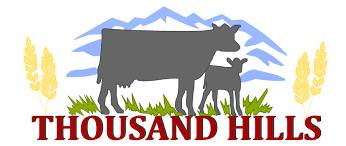 s
s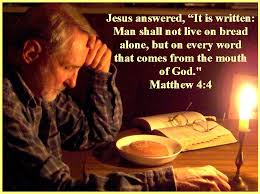


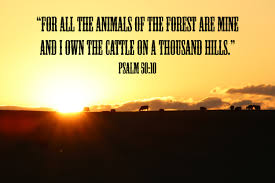

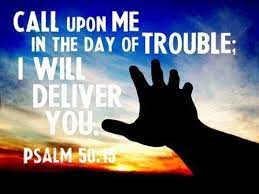




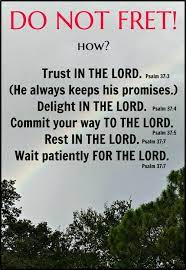


 Israel was never to forget the forty years of God’s care in the desert when Yahweh alone had provided food to eat, clothing to wear, and sandals that never wore thin. In their new and prosperous state in the “land flowing with milk and honey” (Exodus 3:8; Numbers 14:8; Deuteronomy 31:20; Ezekiel 20:15), they might begin to feel self-satisfied, as if somehow they had obtained all these blessings in their own strength.
Israel was never to forget the forty years of God’s care in the desert when Yahweh alone had provided food to eat, clothing to wear, and sandals that never wore thin. In their new and prosperous state in the “land flowing with milk and honey” (Exodus 3:8; Numbers 14:8; Deuteronomy 31:20; Ezekiel 20:15), they might begin to feel self-satisfied, as if somehow they had obtained all these blessings in their own strength.

